How to Use Insurance to Replace a Storm-Damaged Roof (GUIDE)
Severe storms stir up all kinds of trouble. They can cause floods, blow around your outdoor furniture, damage cars, and most pertinent to us, wreak a...
4 min read
 Chris Talton
Jul 5, 2023
Chris Talton
Jul 5, 2023
When your roof endures the impact of a severe storm, it's natural to feel concerned about its condition. Fortunately, if you have homeowner's insurance, you have the option to file a claim with your insurance company to cover the necessary repairs.
While dealing with roof damage is undoubtedly stressful, navigating the insurance claim process can amplify your worries. Even if you've gone through the process before, it's common to have numerous questions lingering in your mind.
At On Tops Roofing, we've been assisting homeowners in Raleigh and nearby areas since 1991, guiding them through the complexities of the insurance claim process. As experts in our field, we often receive an initial query from homeowners: "Should I share my insurance claim with you?"
The truth is, it's crucial to share your insurance claim with your prospective contractor. This information is essential for them to understand the complete scope of roofing work that your insurance company deems necessary. By being fully informed about the insurance process, you can make more confident decisions regarding your roof repairs or replacement.
So, in this blog, we’re going over:
By neglecting to share your insurance paperwork with your roofing contractor, they will remain oblivious to the fact that you have an active claim. Consequently, they won't have insight into what your insurance covers in terms of the estimate and the extent of necessary work.
Without this crucial information, there is a risk that your contractor may provide a quote exceeding the summary pricing outlined by your insurance company. Summary pricing represents the predetermined market value of services covered by your insurance, encompassing labor and material costs, and it is regularly updated.
It's important to note that certain insurance adjusters may overlook specific items mandated by local codes. If your policy includes a provision for code upgrades, your insurance company is obligated to cover these expenses. However, if you fail to share your claim with your contractor, they won't be aware of the coverage for code upgrades, potentially leading to a significantly higher quote compared to your insurance estimate.
By disclosing your claim to your contractor, you ensure that your damaged roof receives precisely what it requires while adhering to the guidelines outlined in your insurance policy. This transparency guarantees that you receive the necessary repairs while staying in compliance with your insurance coverage.
To ensure a smooth process, it is essential to discuss any potential roofing claims with an insurance agent. Once your claim is approved, depending on your policy, your insurance company will issue a check for your roof's Actual Cash Value (ACV) or Replacement Cost Value (RCV). Let's break down each policy:
ACV Policy: This policy covers the depreciated value of your roof. If you have this policy, your insurance company will send you a check reflecting the current value of your roof.
RCV Policy: Under this policy, your insurance company will cover the cost of replacing your roof. You will initially receive a check for the ACV of your roof before repairs commence. The insurance company will retain the calculated amount of depreciation, known as recoverable depreciation.
Recoverable Depreciation: This is the final check sent by your insurance company after you provide proof of repair or replacement completion. Once your project is finished, you will receive a letter of completion along with an invoice. Submitting the invoice to your insurance company allows you to receive a second check for the depreciated amount over the roof's lifetime.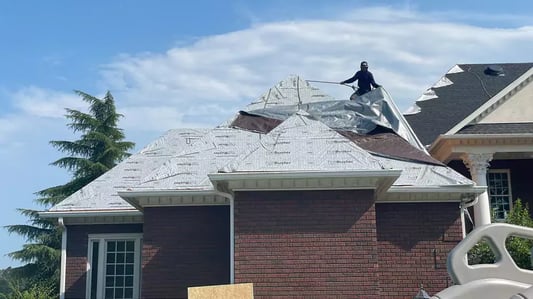
For homeowners with an RCV policy, showing your claim to a contractor prevents inadvertent insurance fraud. If your contractor's estimate falls short of the agreed-upon payment from your insurance, you cannot keep the leftover money.
To avoid insurance fraud, all repairs listed in your insurance claim must be included in your contractor's scope of work. This requirement is why an RCV policy demands proof of completion before releasing a check for recoverable depreciation. Requesting the check without completing the necessary work can result in your insurance company identifying it as fraud.
Once your insurance claim is approved, seeking quotes from multiple roofing contractors becomes unnecessary. By sharing your paperwork with your chosen contractor, they can focus on providing you with a top-notch roof that meets the requirements set by your insurance.
This collaborative approach fosters trust between you and the contractor. Since they are working with an insurance claim, they have no motivation to upsell you on materials or components that are not specified in your claim.
Rest assured that your contractor will provide an honest breakdown of your claim, while you can trust them to handle the project correctly from the start. Building this trust ensures that your roof is completed to your satisfaction, aligned with your insurance guidelines.
In certain instances of extensive or severe damage, your insurance provider may deem it necessary to cover the cost of a full roof replacement instead of a minor repair.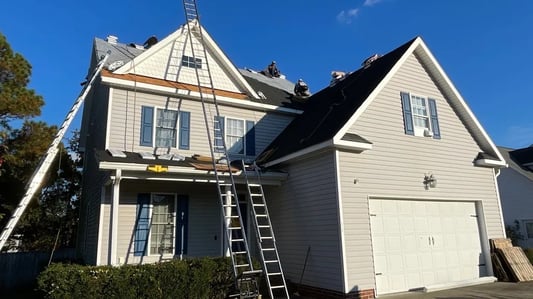
To qualify for a roof replacement funded by your homeowner's insurance, specific criteria must be met in your particular case.
First and foremost, it is crucial that the cause of the roof damage is attributed to the severe weather conditions you encountered. While we will discuss potential disqualifiers in the following section, it is important to note that if an adjuster or inspector determines that the damage preexisted or was not caused by weather-related factors, your policy is unlikely to cover the expense of a replacement.
Severe weather conditions that commonly lead to roof damage requiring a replacement may include high-speed straight-line winds, tornados, thunderstorms, hail, and heavy snow. It is also worth mentioning that tree damage occurring during such weather conditions should be covered, as long as it was unpreventable.
Now that you know you should show your insurance claim to a roofing contractor, you may be tempted to talk to multiple contractors about your upcoming replacement. While it’s definitely important to find the right roofer, you should avoid getting too many quotes for a new roof.
The truth is, there’s really no reason to get more than three quotes when you have an insurance claim. Any more than that is unnecessary and will only waste your time. You can read this article to learn more about the risks that come with getting multiple quotes for a storm-damaged roof.
On Tops Roofing has been working with North Carolina homeowners for over 30 years, and has helped thousands through the insurance roof replacement process. Whatever your roof requires, We’re on it!
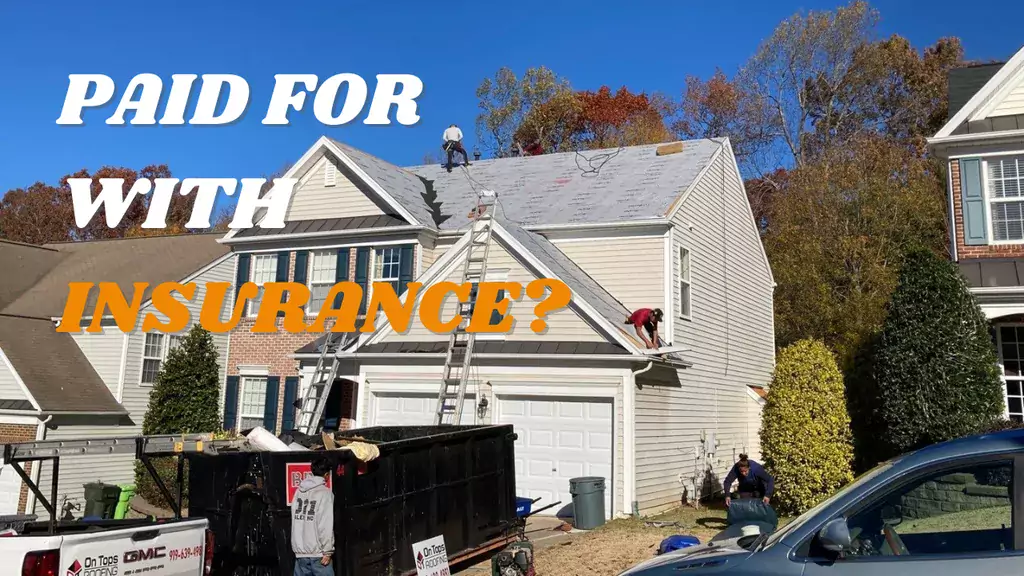
Severe storms stir up all kinds of trouble. They can cause floods, blow around your outdoor furniture, damage cars, and most pertinent to us, wreak a...
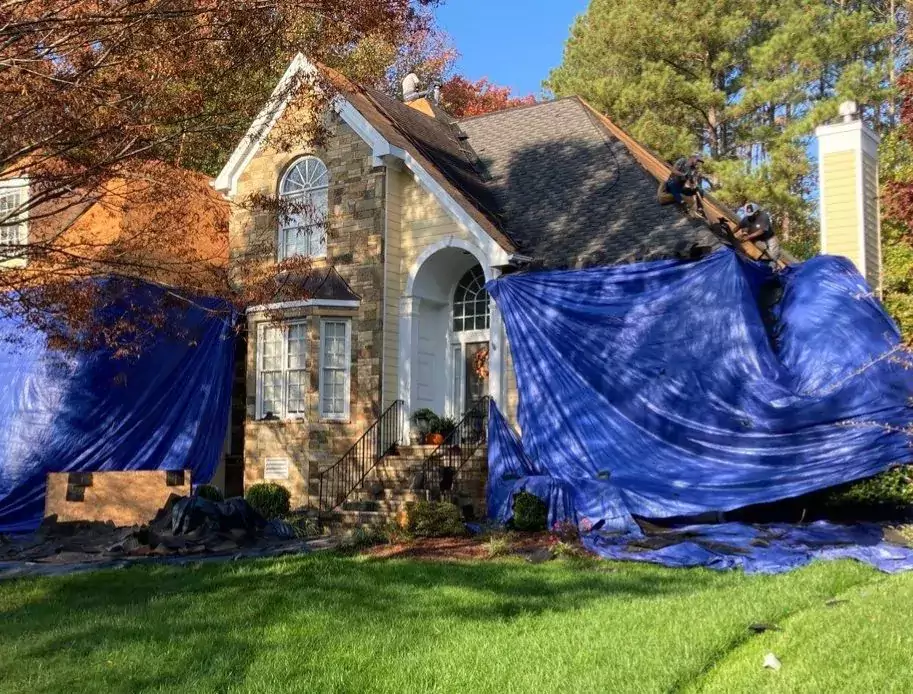
When your area gets severe weather, a LOT can go wrong. Powerlines can be knocked out, roads can be littered with debris, neighborhoods can be...
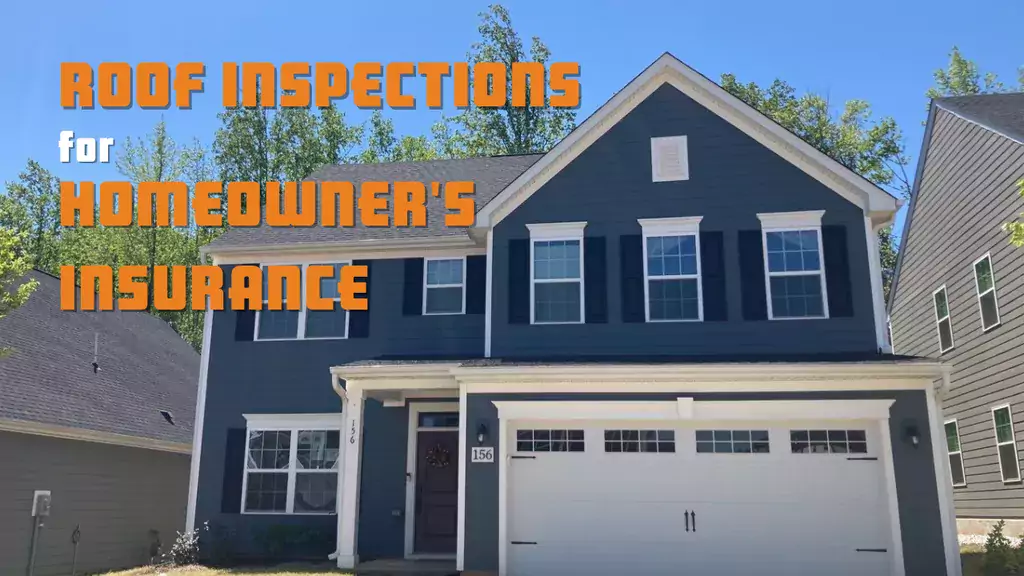
If you're dealing with a storm-damaged roof or in the process of securing a new homeowner's insurance policy, chances are you'll need a roof...